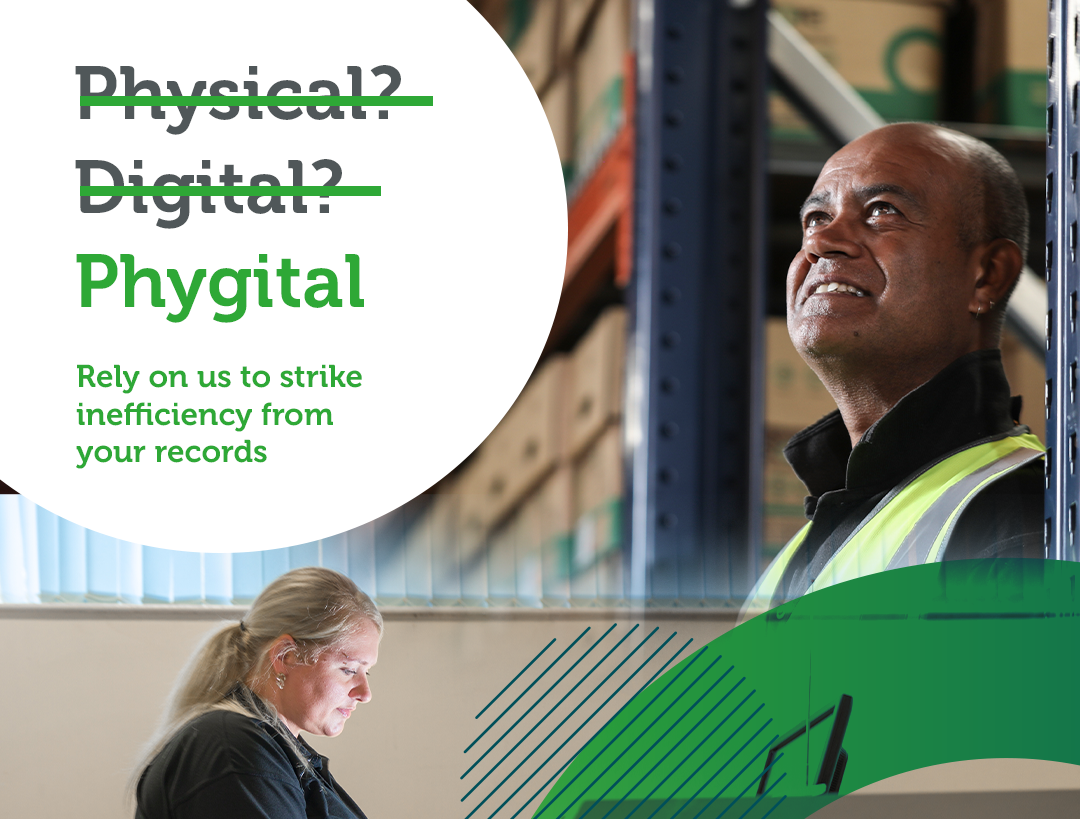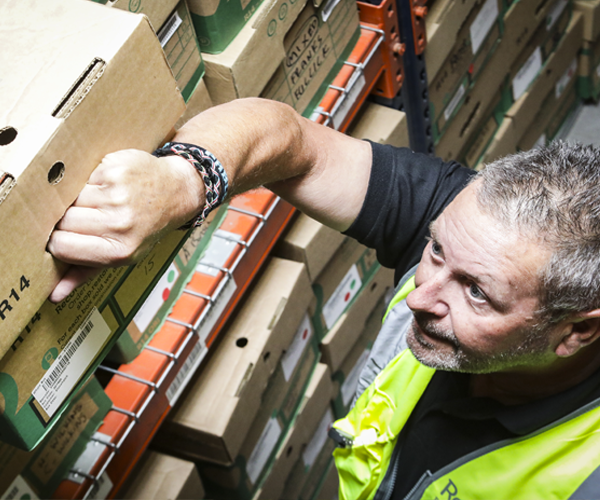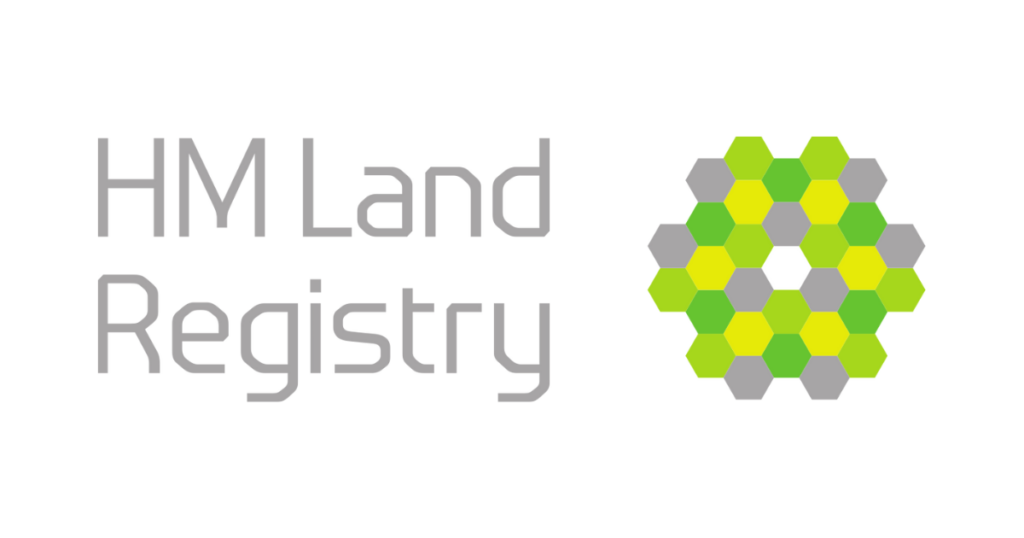When you realise you don’t have to choose between physical and digital records, phygital information management is ready to offer you the best of both worlds.
What do you need to do next? How do you get started? If you can answer the following questions, you’re probably in the right space to take your organisation phygital.

Do you know what’s in your records?
You can only figure out what should be digital and what should be physical if you know what’s in your records.
But many organisations have built a paper archive over years, even decades. So it’s understandable if you’re not sure what’s inside a box or two (or a hundred!)
Start by lifting the lids on those boxes and figuring out what information you’re storing. You might even find records you no longer need to store; securely destroying these records could improve your regulatory compliance as well as saving space!
Find out more
Are you missing data?
It’s common for older records to be missing metadata, which can make those records harder to both find and manage.
Adding that missing data means you can easily find that information again. It also makes it easier to execute your retention policies, securely destroying records you no longer need to store.
Find out more
How are you using your information?
Knowing how your information is being accessed, used, and archived can help you decide whether a record should be digitised or kept physical.
For example, digitising records you regularly request could save you more time and money than scanning files that are rarely needed.
But how you’ll use your information in the future can impact your phygital strategy.
For example, it might not be worth scanning records that soon won’t be needed much. Teams due to adopt hybrid working will need digital records to keep you compliant. Automated workflows you hope to implement will need digital data to get the results you want.
Knowing how you do, and will, use your information will help you make sure your phygital investment gets the biggest bang for its buck.

Do you have the systems and processes you need?
Can your existing systems and processes handle physical and digital records?
Many Document Management Systems (DMS) can only handle one or the other. This leaves your information spread across multiple systems, with all the inefficiencies and risks that entails. If your DMS can’t manage both physical and digital records, you’ll need to find one that can.
And processes surrounding archiving, lifecycle management, data access, and staff training may need to be updated to reflect your new phygital information management.
A thorough risk assessment will help identify any gaps in your current processes and policies.
Do you have the right security in place?
Adopting a phygital approach to your information management means you need to protect both physical and digital records.
Physical security protects both physical files and data centres, including:
- physical barriers (e.g. locked doors, restricted access points)
- access controls (e.g. biometrics, security personnel, CCTV)
- restricting inventory management and delivery requests to authorised staff
Digital security includes measures such as:
- backups and redundancies to protect against hardware failures or outages
- network encryption to protect information as it moves between data centres and staff
- multi-factor authentication to to prevent unauthorised access
- ensuring access is reserved only for those who need it.
Your security measures also need to include proper processes and training, securing any information security accreditations appropriate to your sector, and compliance with the relevant regulations.

Your path to phygital
Being able to answer these questions will help you to find your path to phygital. Of course, every organisation is different; yours might need something we haven’t included here. If you have any questions, give our experts a call and pick their brains; after all, they’ve been creating bespoke answers for our customers for decades!
And if you think you can save time, money, and space by working with information management experts in phygital information management, find out how we can take you to phygital.



